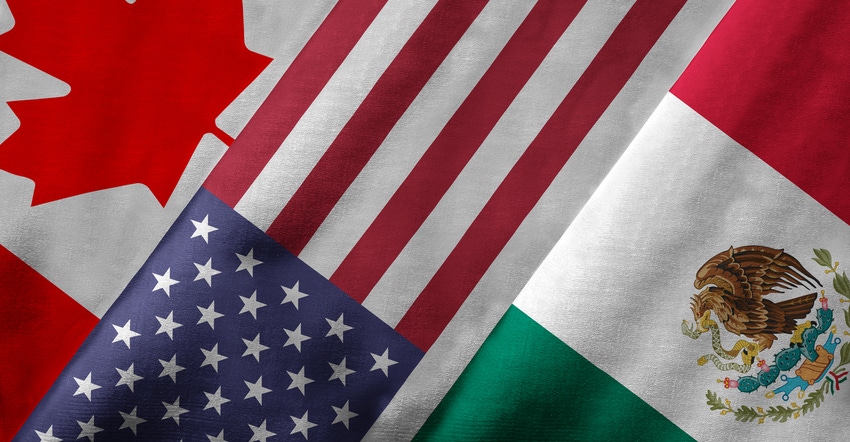September 9, 2019

We usually focus editorial opinions on what’s happening closer to home, such as in the Legislature or on what an agency or group is doing in Indiana. However, the importance of Congress ratifying the trade agreement with the U.S., Mexico and Canada is so high that we’re making an exception.
Randy Kron, farmer and president of Indiana Farm Bureau, said weeks ago that with the trade war with China and sluggish trade talks elsewhere, completing one agreement is a must. It would show that the U.S. can still successfully negotiate and complete trade agreements.
Indiana Farm Bureau believes the deal with Mexico and Canada would be a boost to agriculture everywhere, and certainly in Indiana. INFB’s national government relations specialist, Bob White, says there’s still a reasonable chance the agreement could be ratified by Congress this year, but timing is critical. The deeper the calendar moves into the 2020 election cycle, the less inclined Congress is to do anything.
The Trump administration reached a deal to drastically upgrade and replace the North American Free Trade Agreement from the 1990s with Canada and Mexico late last year. So why hasn’t Congress debated the agreement openly? Indiana’s Sen. Todd Young, addressing the issue while visiting the Indiana Soybean Alliance and Indiana Corn Growers Association offices in June, was still hopeful. But even by that point, he acknowledged politics was at work.
Insider’s view
Chuck Conner, a native Hoosier from Benton County, has worked in Washington, D.C., for decades. He worked with the late Sen. Richard Lugar and then served various roles in USDA. Today, Conner is CEO of the National Council of Farmer Cooperatives, still based in Washington, D.C. When he returned home to speak to farmers at a Ceres Solutions field day recently, he shed insight into what happens, or doesn’t happen, behind the scenes in Washington.
“The two parties have grown so far apart in their views that it’s difficult for them to work together on anything,” Conner says. “And it’s not just the political parties. Polling data shows that Americans are much farther apart on views on various topics than in the past. That’s what makes it so difficult to get anything of significance accomplished.”
The term “do-nothing” dates back at least to the days of President Harry Truman, when he blamed inaction on a Congress that wouldn’t do anything. It would certainly seem like the term defines this current Congress.
Here’s how it plays out all too often, Conner explains. “Representatives are up for reelection every two years,” he begins. “Many are finding it seems safer to do nothing than to do something and upset one side of their voting district or the other.
“The public is so far apart on key issues that congressmen fear that if they take a stand on anything, someone will be unhappy, and it will create negative press. Many believe the safe course is just doing nothing so no one is offended.”
Fortunately, not every representative is afraid to take a stand. Conner is still cautiously optimistic that the U.S. agreement with Canada and Mexico will be ratified.
If it’s going to happen, your congressional representatives and senators need to hear from you. Let them know just how important this agreement is for Indiana agriculture.
Comments? Email [email protected].
You May Also Like




